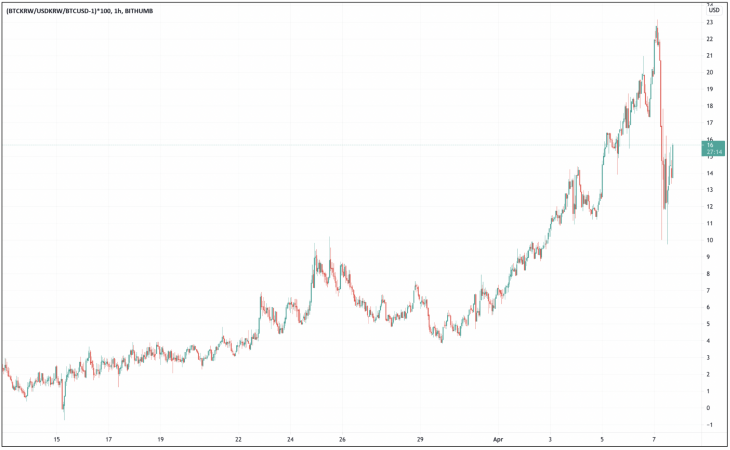An investment management firm with considerable holdings of Grayscale’s Bitcoin Trust (GBTC) wants the asset manager to do something about its premium.
Marlton published an open letter to Grayscale on April 6 asking it to conduct a tender offer of its shares.
Currently, GBTC shares are trading at a discount of about -8%. Investors purchase GBTC shares at net asset value (NAV) and then face a six-month lock-up before they can be sold on over-the-counter markets. When the price of GBTC shares dips below its NAV, they’re trading at a discount.
For years, GBTC shares traded at relatively high premiums or higher prices than their NAV. That declined this year, especially as new crypto-focused structured products entered the market, until it began trading at a discount in February for the first time.
A solution?
Marlton thinks the answer to this problem is a Modified Dutch Auction Tender Offer (MDATO) for GBTC shares, calling it a “well proven closed-end fund strategy that is often initiated by sponsors or managers for the purposes of closing discounts to NAV,” in a statement accompanying its letter.
An MDATO sees the firm set a price range that they would be willing to repurchase shares, allowing shareholders to liquidate holdings by tendering them within the range if they so choose. The firm, in this case, Grayscale’s parent Digital Currency Group (DCG), would repurchase a certain value of shares at the most competitive price within the range.
If accepted, this wouldn’t be the first solution Grayscale has tried. DCG purchased $250 million worth of GBTC shares, but that hasn’t translated to a return to a premium.
“The approved authorized purchase is ineffective and that has been shown through the market’s reaction — a deeper discount to NAV,” said Marlton’s letter.
As of now, there are no plans to conduct an MDATO, according to Grayscale.
The sentiment
Yesterday, Grayscale announced its plans to reapply to convert GBTC into a bitcoin exchange-traded fund (ETF). Marlton also addressed this, saying it sees the intention to reapply as “simply doubling-down on a wait and see strategy,” since previous applications were unsuccessful.
Grayscale remains the dominant force in the crypto structured products game, with $39 billion in assets under management. However, Marlton said it and other stockholders are frustrated and concerned that Grayscale has yet to find a way to turn the tide, remaining “unconvinced” by the confidence that the discount is a non-issue caused by supply and demand disparity.
Marlton called this take “irresponsible,” arguing that the discount has translated to a $3.1 billion loss for stockholders.
“From a governance perspective, we are frustrated that the Board might allow management to squander the Company’s leading market share to the detriment of GBTC stockholders, whilst simultaneously rewarding yourselves handsomely with a profligate, market leading, 2% management fee. Marlton and other stockholders will not tolerate such clear destruction of stockholder value.”
When reached for comment, Grayscale didn’t respond to the statements made in Marlton’s letter but said it remains “100% committed” to converting GBTC to an ETF.
© 2021 The Block Crypto, Inc. All Rights Reserved. This article is provided for informational purposes only. It is not offered or intended to be used as legal, tax, investment, financial, or other advice.
Go to Source
Author: Aislinn Keely
